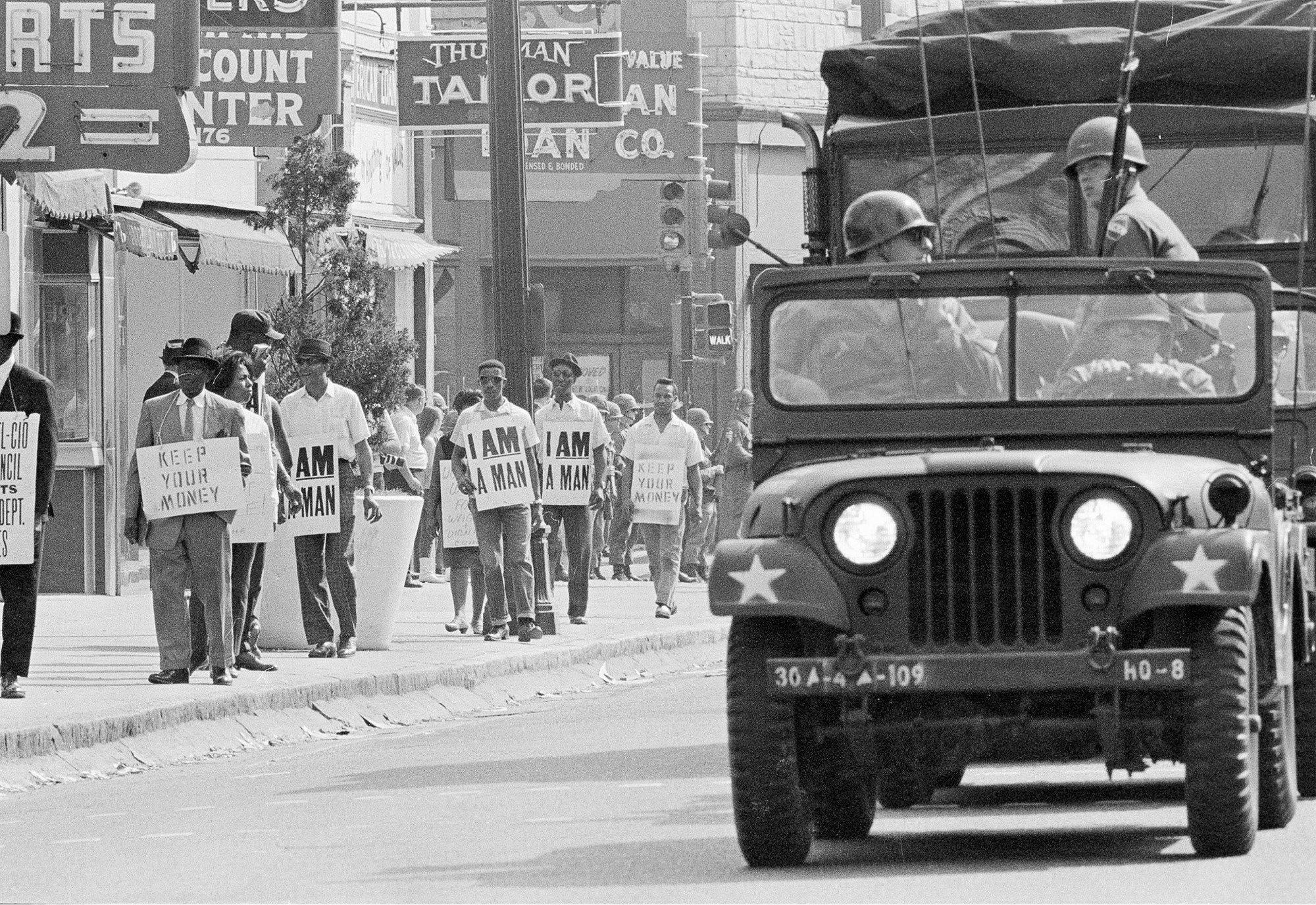On March 28, 1968, Martin Luther King Jr. journeyed to Memphis, Tennessee, to support Black sanitation workers in their quest for dignity and fair treatment. He led a march of 6,000 people in solidarity with their cause, which unfortunately escalated into violence. Tragically, one person lost their life, while 50 were injured, and hundreds were detained.
As the procession advanced through the iconic Beale Street, some young Black individuals began vandalizing storefronts. When they reached a critical juncture, fellow freedom rider James Lawson observed a significant police presence in riot gear, prompting concern for King’s safety. Lawson persuaded him to depart the scene to avoid potential harm. The aftermath deeply troubled the civil rights icon. Just days later, on April 8, King was assassinated.
Click play to listen to the AURN News report from Clay Cane. Follow @claycane & @aurnonline for more.




